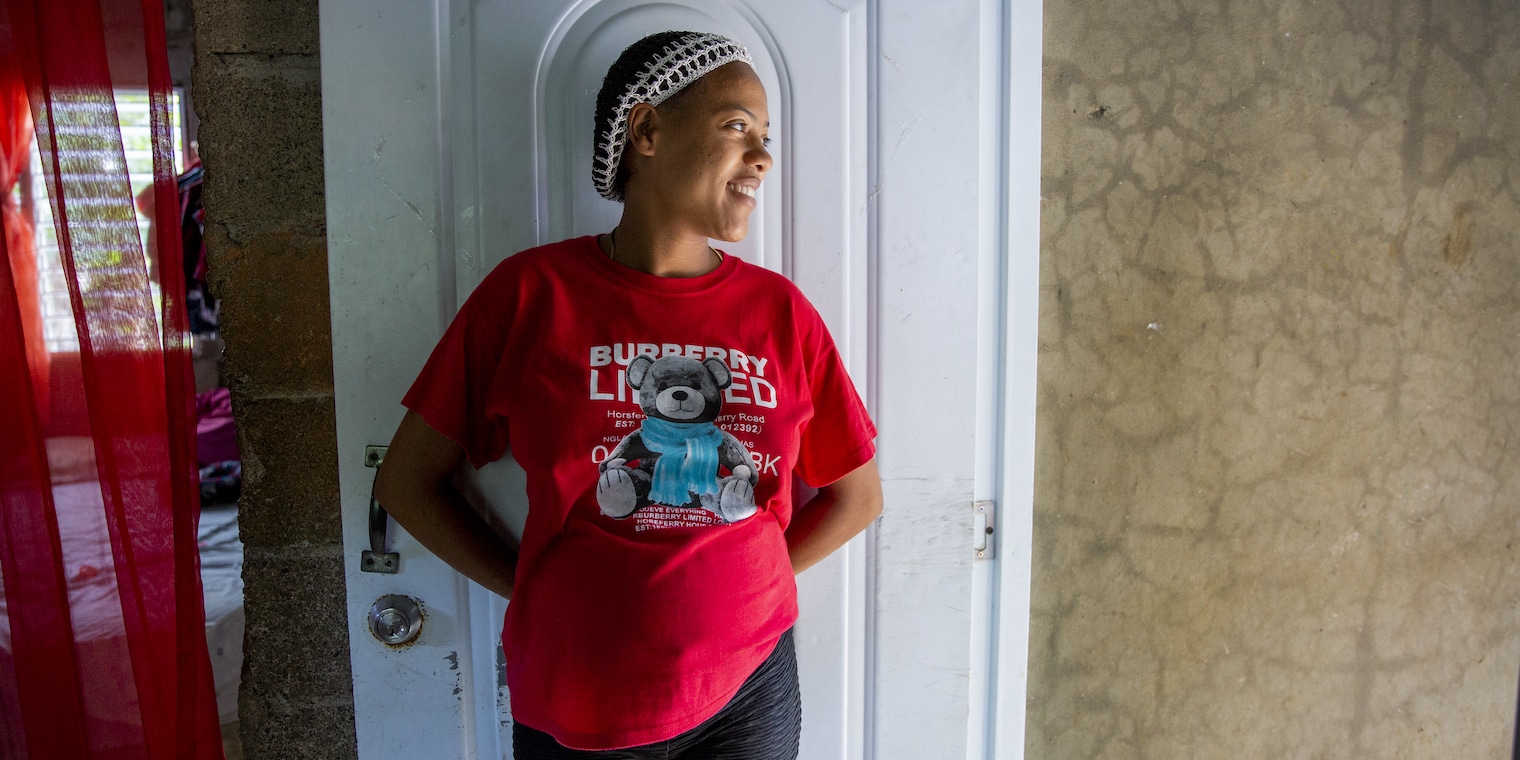
How Yerika Found Prenatal Care at Her Doorstep
In a rural neighborhood of the Dominican Republic, an expectant mother prepares for her first child with the help of a community health worker and Project HOPE.
Yerika Hernández is weeks away from giving birth to her first child — a boy.
Yerika, who recently turned 20, lives in the countryside of La Vega, a province in the center of the Dominican Republic and the fourth-largest city in the country. Project HOPE works with 23 health clinics here, mostly in the rural outskirts of town.
Yerika lives in a one-bedroom cement house with her parents, brothers, and nephew. Their home is at the end of a dirt road and surrounded by fruits and vegetables — tomatoes, avocados, guavas, mangos, bananas, cherries, and more.
Since the very beginning of her pregnancy, Yerika has been going to Los Pinitos health clinic, where Project HOPE provides training and support. And once a month, she receives a home visit from a local doctor and Jennifer Santiago, a community health worker trained by Project HOPE.
“Project HOPE has given us training, support, medical equipment, and medications for mothers and pregnant women,” Santiago says. “My job as a community health worker is to follow up. I’m always following up — calling them, visiting them, checking in often, and asking them to come to the clinic.”
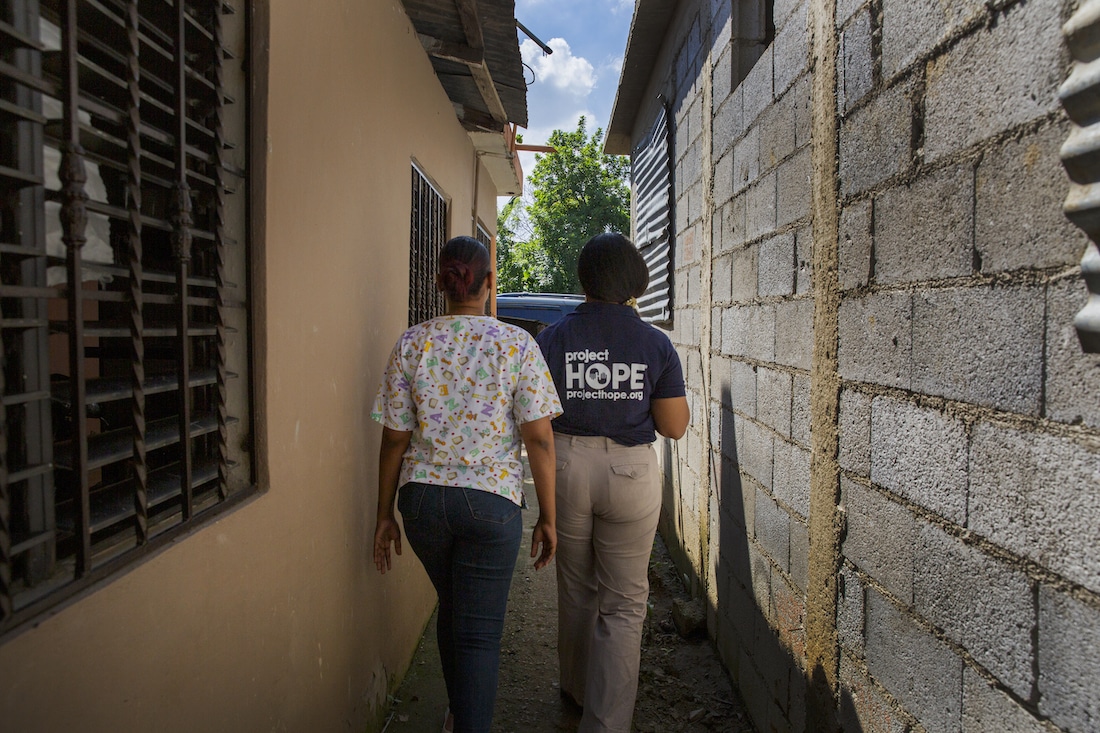
Poverty is a major issue in the community, says Johanny Gugmés, the doctor who accompanies Jennifer to patients’ homes. “That’s why we come to their homes and visit them. This way we can observe and monitor the safety and cleanliness of the house, its materials, and its surroundings.”
Jennifer has lived in this neighborhood her entire life and has built a high level of trust with everyone in the community.
“I am the link to health for my neighbors, for my community,” she says. “I’ve been part of this community my whole life — I know the community, and they trust me in this role.”
Yerika and Jennifer’s fathers are friends, and the girls grew up playing together. Now, Jennifer is ushering Yerika into one of the biggest transitions of her life: motherhood. Yerika says she trusts Jennifer completely and feels like she can call on her whenever she needs to.
“It’s my first pregnancy, and Jennifer and Johanny have taught me everything I know about taking care of myself and preparing myself to be a good mother,” Yerika says.
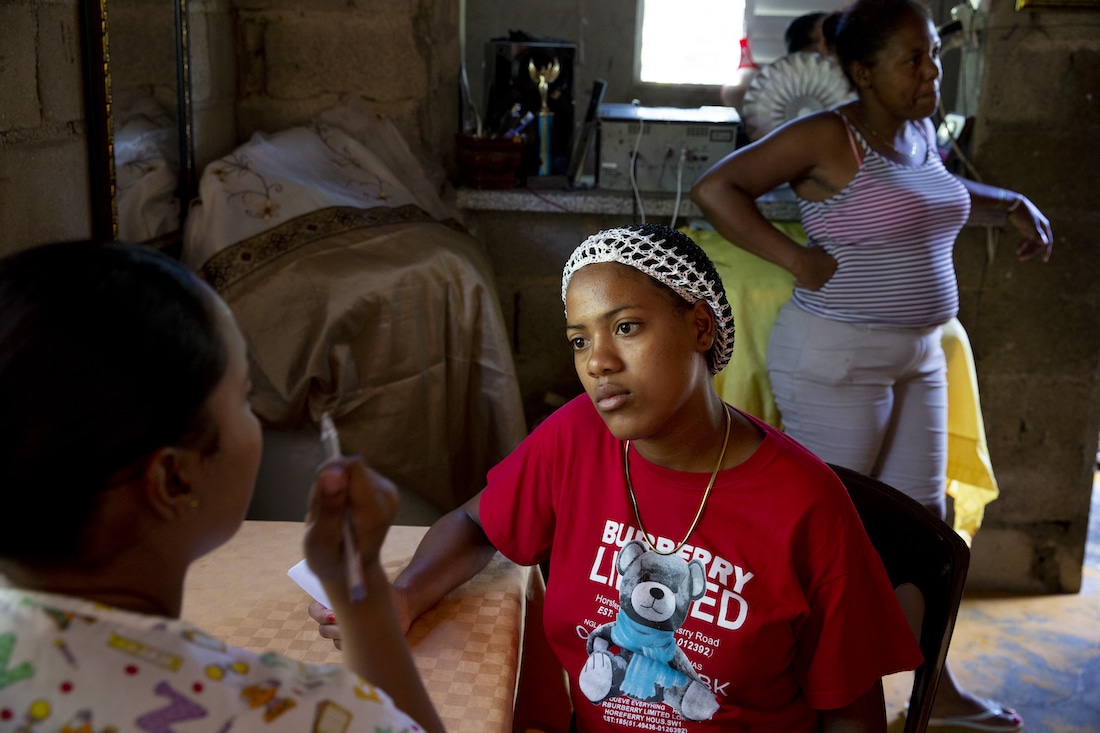
When they pay a visit to Yerika this month, they talk about the importance of vaccinations and good nutrition — what to eat, how much to eat, and what to avoid.
“I have to eat healthy. They say a little more meat, like chicken, and a lot more vegetables, for vitamins and minerals,” she shares. “No yuca, no plátanos. They told me to try not to drink soda, not to drink alcohol, and not to smoke cigarettes or be close to someone smoking.
“They remind me to take my vitamins, that it’s very important to take my vitamins and have good nutrition during my pregnancy. They also remind me that breastfeeding for the first six months will be all I need to feed my baby. After six months, I can give him some solid food with the breast milk,” she says.
“If they were not here — if Los Pinitos was not here — I probably would not have received prenatal care,” Yerika says.
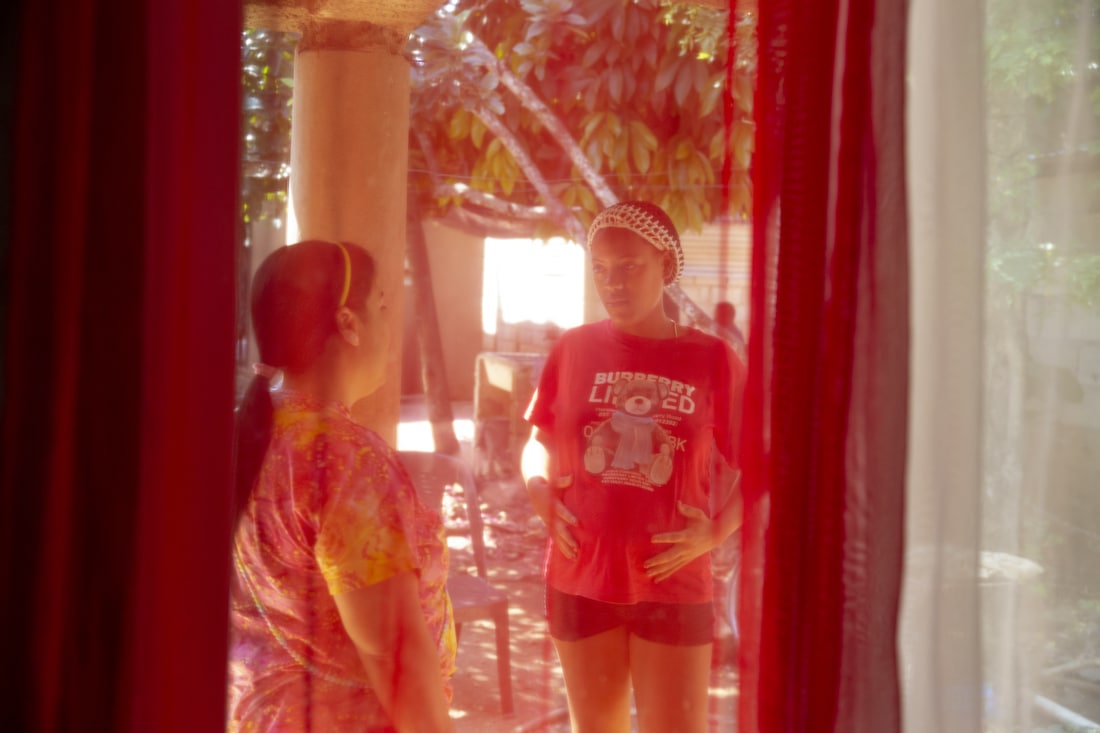
Even though most births take place in hospitals, the Dominican Republic has one of the highest neonatal mortality rates in Latin America: 23 out of every 1,000 babies won’t survive their first month of life.
There has been a downward trend in recent years, but COVID-19 strained resources and hampered progress. The true impact of the pandemic is still unknown, but between 2020 and 2021, maternal mortality increased by 33% and neonatal mortality by 39%.
Most of these deaths could be prevented by improving the quality of basic health care services. That’s what Project HOPE is working to do. Our team works closely with health workers in hospitals, clinics, and communities to reach pregnant women with the education and services they need to protect their health and be prepared to give birth.
A key element of this work is engaging inside communities through Project HOPE staff and trained community health workers like Jennifer. Training follows the “5 Star Mother” strategy, developed by Project HOPE, and is complemented by a mobile app to support mothers in completing essential health milestones.
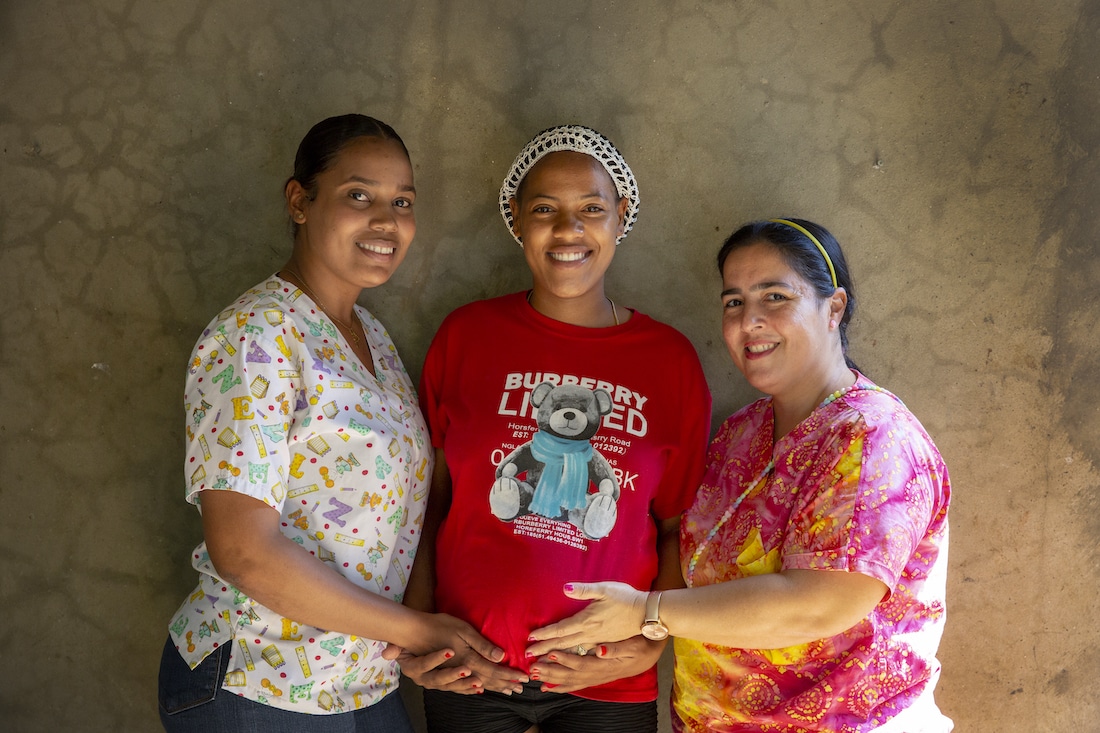
“The trainings we’ve received from Project HOPE, and the app, have brought us the information we need to teach others,” Jennifer says. “Now I can show pregnant women and mothers the steps they have to take to keep themselves and their babies healthy, to help them grow stronger, and to lead them to a better future. I cannot put into words the gratitude I feel for Project HOPE.”
Yerika already has her bag ready and packed to go with her to the hospital when it’s time for her baby boy to make his grand entrance into the world. And, outside of her family, Jennifer will be the first to know when the day comes.
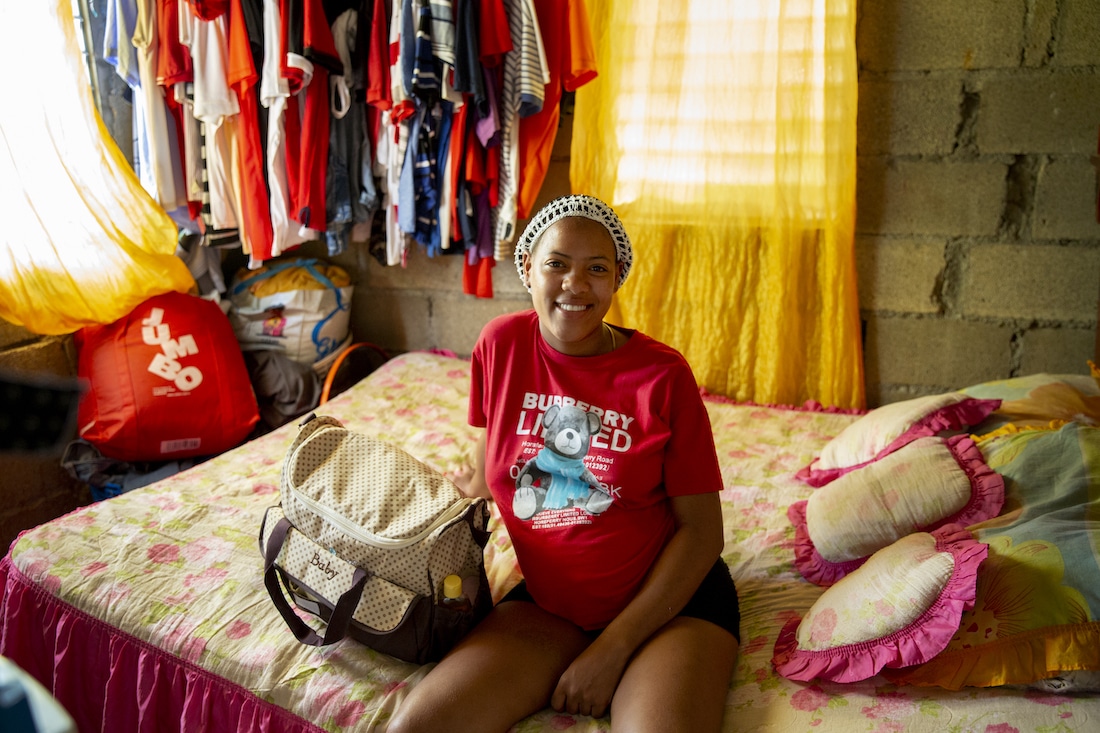
>> Learn more about Project HOPE’s work in the Dominican Republic
>> Learn more about Project HOPE’s work to improve maternal, neonatal, and child health
How you can help
Make a lifesaving gift to support our work now and for the future at projecthope.org/donate
Are you a health-care or other professional who would like to learn more about volunteering abroad with Project HOPE? Learn more about our volunteer program and join our volunteer roster.
Stay up-to-date on this story and our lifesaving work around the world by connecting with us on Facebook, Instagram, LinkedIn, Twitter, Youtube, TikTok, and help spread the word by sharing stories that move and inspire you.